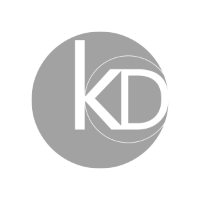
Executive coaching can be an incredibly valuable tool for business owners and executives. However, in order to get the most out of your coaching relationship, it is important to ask the right questions. In this blog post, we will discuss some of the most important coaching questions that you should be asking. By asking the right questions, you can make sure that you are getting the most out of your coach and making progress towards your goals!
What is executive coaching?

Executive coaching is a process that helps leaders improve their performance and achieve their goals. The executive coaches work with the client to identify areas of improvement, set goals, and create a plan of action.
The coach then provides support and guidance as the client works to implement the plan. Executive coaching can be an effective tool for helping leaders overcome challenges, achieve success, and reach their full potential.
When done well, it can help leaders become more self-aware, develop new skills, and reach their goals. Executive coaching can also help leaders build better relationships with their employees, customers, and stakeholders. It is important to choose a coach who is experienced and reputable in order to ensure a positive experience.
How can you make the most out of your executive coaching session?

Executive coaching can be an invaluable tool for anyone looking to take their career to the next level. But in order to get the most out of your coaching period, there are a few things you can do to prepare.
First, it’s important to identify your goals. What exactly do you hope to achieve through coaching?
Once you have a clear understanding of your goals, you can communicate them to your coach and work together to create a plan.
It’s also helpful to come prepared with powerful questions for your coach. This shows that you’re engaged and committed to the process.
Finally, be open to feedback and willing to make changes. Executive coaching is a partnership, and the more open you are, the more successful it will be.
What questions should you ask before your coaching session?

Before your coaching session, it is important to ask the right questions. This will help you get the most out of your session and ensure that you are on the same page as your coach. Here are 15 questions to ask before your coaching session:
What are your coaching goals?
What are your expectations for the session?
What is your ideal outcome for the session?
What topics do you want to focus on?
What challenges are you facing?
What decisions do you need to make?
What obstacles are in your way?
What resources do you need?
Who can help you achieve this goal?
What risks are you willing to take?
What is your timeline?
What is your budget?
How often do you want to meet?
Where do you want to meet?
How long do you want to meet for each session?
What coaching skills should you look for?
How to maintain a healthy coaching conversation?

A coaching conversation is a healthy dialogue between coach and client that delves deep into the thoughts, feelings, behaviors, and results that the client is experiencing. The coach’s role is to help the client become aware of what they are thinking and feeling in order to better understand their current situation. The coach then helps the client identify any areas they would like to change or improve.
In order to maintain a healthy conversation, it is important for both the coach and the client to be open and honest with each other. The coach should create an environment where the client feels safe to share their thoughts and feelings openly.
The coach should also be respectful of the client’s confidentiality. The client should feel free to share anything with the coach without fear of judgment.
If either the coach or client is not comfortable with the conversation, it is important to communicate this to the other person. A healthy conversation is one where both parties feel safe and respected.
How can a business leader ensure healthy interactions with employees?

As a business leader, you know that maintaining healthy interactions with your team is essential to achieving organizational success. But what does it take to ensure that these conversations are productive and effective? Here are four key tips:
1. Listen more than you speak
In order to really understand direct reports, you need to give them the space to share their thoughts and feelings. resist the urge to jump in and offer solutions; instead, focus on listening intently and openly.
2. Ask open-ended questions
If you want to encourage creativity and critical thinking, ask questions that cannot be answered with a simple “yes” or “no.” Get your team members talking by asking them to elaborate on their ideas and thoughts.
3. Avoid giving advice
It can be tempting to try and fix every problem that your employees bring to you; however, this well-intentioned habit can actually stifle creativity and innovation. Instead of offering solutions, help your team members brainstorm different options and find their own answers.
4. Encourage feedback
Two-way communication is essential for healthy coaching conversations. Make sure that you leave room for feedback from your employees so that you can continue to improve the way you interact with every direct report. By following these tips, you can create an environment where coaching conversations can thrive and help your business reach new heights of success.
What is leadership coaching?

Leadership coaching is a process that helps leaders identify areas where they can improve their performance and develop strategies for achieving their goals. Coaches work with their clients to assess their strengths and weaknesses, set challenging yet achievable objectives, and create action plans for reaching those objectives.
The coach-client relationship is built on trust, mutual respect, and a commitment to growth and improvement. Through regular meetings and check-ins, coaches provide guidance, support, and accountability to help their clients reach their full potential as leaders. If you lack leadership skills, leadership coaching may be right for you.
What are the most common leadership coaching questions?
Coaching is typically seen as a tool for employees who are struggling with their performance or for those who are being groomed for leadership positions. However, coaching questions can also be beneficial for leaders who are looking to improve their skills. The following are some of the most common leadership coaching questions that leaders ask:
What are my strengths and weaknesses?
How can I delegate more effectively?
What can I do to better motivate my team?
How can I overcome my fear of public speaking?
What should I do if I am encountering resistance to change?
How can I create a more cohesive team?
What can I do to better manage my time?
How can I deal with conflict within my team?
How can I be more decisive?
What is my communication style and how can I improve it?
These were some of the leadership coaching questions that can help set your path forward.
What are the qualities of a good professional coach?

A professional coach is someone who is paid to help other people achieve their personal or professional goals. While the word “coach” can be used to describe anyone who provides guidance and support, there are certain qualities that are essential for a good professional coach:
1. Expertise
A good professional coach should have extensive knowledge and past experiences in their field in order to best help clients. They should be able to share relevant resources, give expert advice, and provide guidance based on their first-hand experiences. This way, the coach can help equip their clients with the tools they need to reach their goals.
2. Supportive & honest
A good professional coach is supportive and honest. They will help you to improve your skills and performance by providing constructive feedback and encouragement. At the same time, they will also be honest with you about your strengths and weaknesses. This balance of support and honesty is essential for helping you to reach your full potential as a professional.
3. Patient & Encouraging
A good professional coach is patient and encouraging. They understand that their clients are working hard to improve and grow, and they provide the support and motivation needed to help them achieve their goals. This type of coach knows how to celebrate each client’s successes. As a result, their clients feel valued and supported, and they are more likely to reach their full potential.
4. Good listener
A good professional coach is a good listener. This means that they are attentive and focus on understanding the speaker. They use active listening techniques, such as making eye contact and repeating back what was said. This allows them to understand the client’s needs and help them in goal setting.
5. Adaptive
A good professional coach is someone who is adaptive and able to adjust their coaching style to meet the needs of their client. They are also able to dig deeper and understand the skill level of their clients and adapt their coaching accordingly. Lastly, they are responsive to feedback and follow up with their clients after sessions.
6. Respectful
A good professional coach respects their coachee’s different perspective. They understand that their coachee is the expert in their own life, and they show this by being open to hearing about their coachee’s experiences and challenges. This respect creates a safe environment for the coachee to share openly and candidly, which is essential for effective coaching.
What are the 5 basic elements of a coaching session?

A coaching session typically includes five basic elements:
1. Rapport building
Rapport building refers to the process of establishing trust and mutual respect between coach and client. Why is rapport so important?
In order to explore sensitive issues with their coach, clients need to feel safe and comfortable. They need to know that their coach is someone they can trust, and who will respect their confidential information. Only then can they open up and work together to identify areas of growth and opportunity.
Therefore, it is essential that coaches take the time to build rapport with their clients from the very beginning. By creating a foundation of trust, they pave the way for a successful relationship.
2. Goal setting
Once rapport has been established, the client and coach work together to identify specific goals. These goals may be personal, professional, or both. The coach will help the client to clarify these goals, and may also help to identify any obstacles that might stand in the way of achieving them.
Together, they will develop a plan of action for how to best achieve these goals. This may involve setting regular check-ins with the coach, as well as determining what resources and support the client will need along the way.
By taking the time to set clear goals at the beginning of the coaching relationship, the coach and client can ensure that they are working towards effective and meaningful change.
3. Data gathering
Before coaching can begin, the coach must first gather data about the client’s current situation. This may be done through interviews, document reviews, or observations. The coach then uses this information to help the client gain insight into their current reality.
By understanding the client’s current situation, the coach can better help them identify areas of opportunity and develop a plan for moving forward. Data gathering is an essential step in the coaching process, and it helps to ensure that the coach and client are working with accurate and up-to-date information.
4. Feedback
Feedback is an essential element of coaching for many reasons. First, it allows the coach to help the client see themselves more objectively. This self-awareness is crucial for making lasting changes in thoughts and behaviors. Second, feedback provides a way for the coach to assess whether the client is making progress towards their goals. This information is essential for making adjustments to the coaching plan.
Finally, feedback helps to build trust between the coach and the client. As the client starts to see results from coaching, they will be more likely to stick with it and continue working towards their goals.
5. Action planning
Action planning is the final element of coaching. Together, the coach and client develop a plan for making changes in thoughts, emotions, or behaviors. This plan may include specific steps, milestones, and timelines. The goal of action planning is to help the client move closer to their desired outcome.
To do this, the coach and client work together to identify what needs to change and what steps need to be taken to make those changes. They then create a realistic and achievable plan that includes specific steps, deadlines, and milestones.
What are the benefits of professional coaching questions?
Professional coaching questions can help individuals to explore new possibilities, increase awareness, and engage in self-reflection. Moreover, opinions expressed can be received without judgment and coached towards a different perspective. This type of exploration allows for growth and change within an individual. As a result, professional coaching questions can be incredibly beneficial for those who are open to new ways of thinking and willing to invest in personal development.
What is the Grow Model of coaching?
The Grow Model is a process that helps to structure coaching sessions with team members. The word Grow means:
Goal
Current Reality
Options
Will power
It begins with the coach asking the client to describe what they want to achieve and then moves on to exploring the client’s current position and options they have to develop a plan of action. Once done, willpower will determine the way forward.
The coach remains focused on helping the client from the very first step and provides support and guidance as needed. By following the Grow Model, coaches can help their clients improve performance and create lasting change in their lives.
Conclusion to coaching questions
Professional coaching questions can help individuals to explore new possibilities, increase awareness, and engage in self-reflection. Coaching is a process that helps to structure sessions so that the coach and client can work together towards achieving specific goals. The Grow Model of coaching is a process that helps coaches to guide their clients through change in a step-by-step manner. By following the Grow Model or another structured process, both the coach and client can ensure that they are making progress on their desired outcomes.
FAQs

What is the difference between a life coach and a career coach?
A life coach helps people to identify and achieve personal goals, while a career coach provides guidance and advice on professional development. The most important thing to remember is that a life coach is not trained to give specific career advice, while a career coach is. A limited time with a life coach may be spent on identifying work goals, but the focus is mainly on the person’s overall purpose in life. In contrast, employees usually consult with career coaches for a specific period of time to achieve a goal within their current or future profession. While both coaches help clients to achieve the required outcome, it is important to remember that their approaches are quite different.
Who is called a direct report?
A direct report is someone who reports directly to you in the workplace hierarchy. In many cases, direct reports are people who work on your team or in your department. As a manager or supervisor, you are responsible for overseeing their work and ensuring that they meet their objectives. In some cases, you may also be responsible for providing feedback and mentorship. Ultimately, your goal is to help them grow and develop in their role so that they can contribute to the betterment of the organization.
Who can benefit from professional training?
Groups or individuals who are looking to improve their performance can benefit from professional training. One example is a program designer who wants to learn how to create a powerful statement that helps people focus and make progress. Professional coaching skills can also be beneficial for managers who want to learn how to lead and coach their teams more effectively. In short, anyone who is looking to improve their performance in a specific area can benefit from professional training. The key is to prepare powerful questions that will determine the outcome of the learning session.
What questions do executive coaches ask?
An Executive coach may ask a variety of questions in order to help clients achieve their goals. These useful questions may cover topics such as time management, leadership style, decision-making, and stress management. By asking probing questions, coaches can help their clients gain insights into their own behavior and learn new strategies for achieving success.
Did you find this helpful? Let us know in the comments section!
